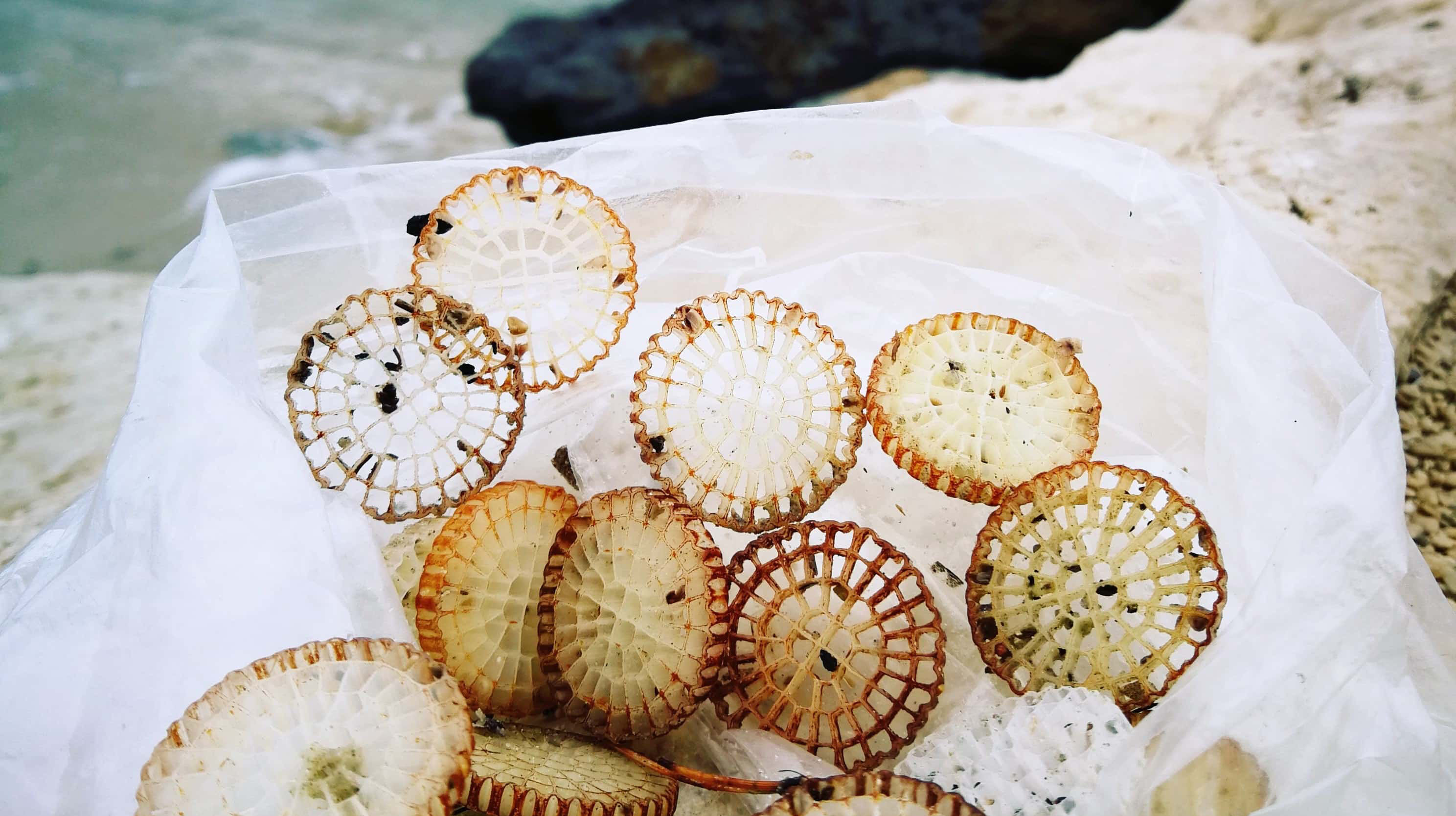Unprecedent pollution: last massive arrival of biomedia on Mediterranean coasts
Since the beginning of 2021, concerned citizens testimonies are multiplying on Corse’s beaches (France) following up the discovery of huge amount of biomedia. Among them, the one of Mare Vivu is especially significant: regularly in contact with Surfrider Europe since 2016 – date of its creation – members of this Corsican environmental organization discovered, last February, thousands of K5 biomedia type, concentrated on the Lido de la Marana beach, in the south of Bastia. The following day, they received tenth of similar testimonies and sadly note a huge number of biomedia on the east coast beaches. If these whistleblowers were reporting for the past 5 years, the presence of numerous models of bio-film support media all along the Corse coastline, they had never seen such a huge amount, letting them think of an accident in one of the island water treatment plants. Side by side with Mare Vivu, Surfrider investigated to shed the light on this new biomedia pollution.
>> read the testimon <<
Alarming, this phenomenon hasn’t been observed in Corsica only… Surfrider Europe has, indeed, been alerted several times, by citizens and members of organizations such as Clean my Calanques, of the presence of same biomedia type on several beaches of the Azur coast but also in French and Spanish Catalonia. These observations show that once spilled in aquatic environments, biomedia scatter fast and over long distances making it a global pollution! Millions of biomedia rejected by the South Bastia wastewater treatment plant, will continue to pollute for years the Mediterranean Sea and its fragile fauna. Autopsies of beached turtles has already shown biomedia in their stomach.
Each time more numerous, these citizens’ testimony, worried to see their natural environment degraded by such a plastic pollution, allow us to pressure public authorities and industrial actors and push them to act.
Towards making perpetrators accountable?
Because the source of this pollution is still difficult to find (biomedia being transported by currents, far away from the wastewater treatment plant responsible of the spill), it seems necessary to stop it at source by disseminating best practices and recommendations, by adopting concreate regulations and by engaging the liability of their authors in case of accidents.
In line with this statement, the first trial related to plastic pollution of the Mediterranean Sea started at the beginning of 2021 in Italy. Following the dysfunction of a municipal wastewater treatment plan in Capaccio Paestum (Province of Salerno) in 2018, occidental Mediterranean coasts were invaded by biofilm carriers: a plastic pollution against which several national environmental organizations raised, among which Legambiente. This last one filed a civil case, against 8 persons charged for “environmental disaster” and intentional pollution by negligence, for the spillage of 130 millions of biomedia. On the defendant bench: officials of Paestum city hall, and managers of the wastewater plant treatment, water company Veolia that made some renovation work and the company in charge of the site management, accused of one of the biggest plastic spillages in the Mediterranean Sea. If the Italian law related to environmental crime, expose them to 15 years of prison, this first action, link to biomedia, highlighted the seriousness of this pollution and the need to stop it as soon as possible.
Surfrider follows with close attention this trial and support the parties by providing evidence of the extent of the pollution. his has been made possible by the commitment of tens of thousands of citizens who have reported the presence of these biofilm carriers on the Mediterranean coast.
From aquatic environment to European institutions
The testimonies also allow us to give more weight to our claims with the European and national authorities. Indeed, they are sensitive to the concerns of citizens
Surfrider is currently taking part in the revision process of the Urban Waste Water treatment directive (UWWT), in order to integrate the issue of biomedia pollution in European law. The European directive related to the treatment of urban waste water adopted in 1991, aiming to protect the water environment and the human health against the adverse effects of discharges of urban waste water. This directive evaluation led in 2020 highlighted some shortcomings and new societal needs. Surfrider Europe thinks that not considering biomedia pollution goes against the spirit of the Directive as it is unthinkable that a process used to improve water treatment end ups polluting in the long run, riverways and the Ocean. We thus answered the consultation and mobilized other organizations around a common statement that will be sent to the European commission in September.
In order to fight against biomedia pollution, every report counts!
Whether you are a kayaker, a walker a holidaymaker, your observations can help us to alert decision-makers and companies, to monitor pollution or to identify malfunctions in wastewater treatment plants.
So keep your eyes wide open and alert Surfrider Foundation Europe if you found biomedias!

